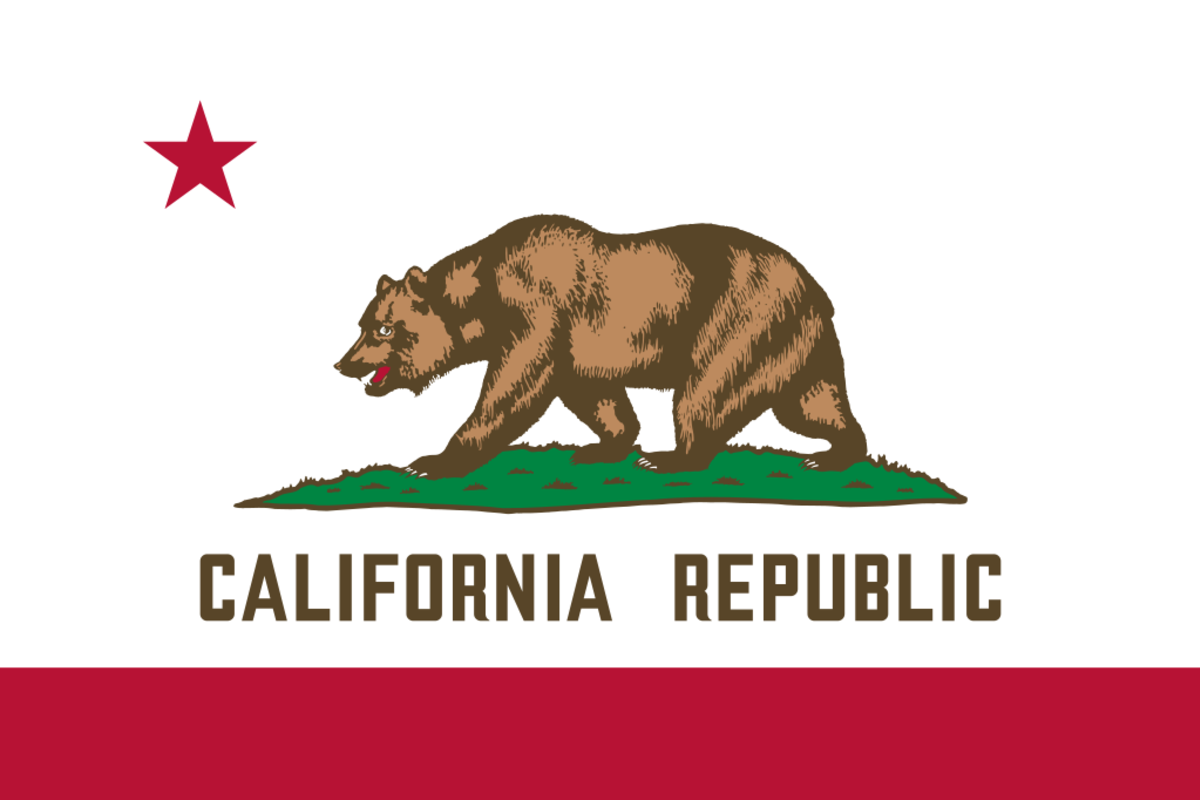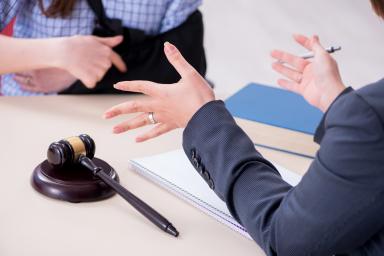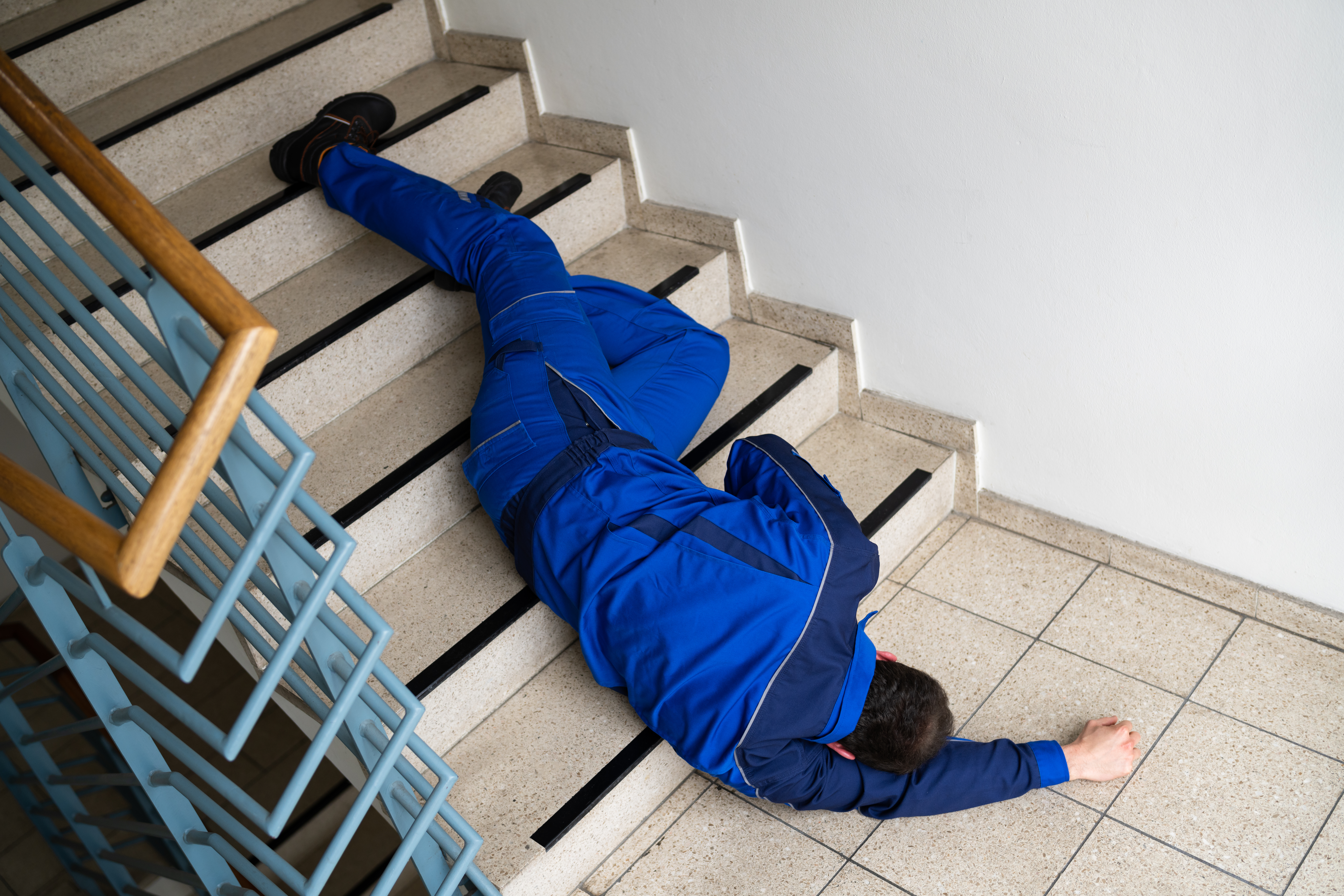California Slip-and-Fall Laws

Slip and fall accidents can happen unexpectedly, causing severe injuries and emotional distress to victims. In 2020, over 1.4 million Californians grappled with the aftermath of slip-and-fall incidents, seeking answers to find their way through the complex legal maze of personal injury laws.
This article will highlight California's most prominent slip-and-fall laws, focusing on critical legal principles such as premises liability and duty of care. By arming yourself with knowledge, you can confidently navigate the aftermath of a slip-and-fall accident, ensuring your well-being and seeking justice for your losses.
Premises Liability Law in California
In California, premises liability refers to the legal concept that property owners and occupiers must maintain safe conditions. Property owners must inspect their premises, and if a dangerous situation exists, they must either fix it or provide adequate warnings to prevent harm to visitors.
When someone suffers a slip-and-fall injury on someone else’s property, they may file a premises liability claim. To establish a meritorious claim, the injured party must demonstrate the following:
That the defendant owned, leased, occupied, and/or controlled the property;
That the property owner was negligent in the use or maintenance of the property;
That the plaintiff was harmed; and
That property owner’s negligence was a substantial factor in causing the plaintiff’s harm.
(See California Civil Jury Instruction CACI No. 1000.)
Premises liability applies to various properties, including private homes, businesses, public spaces, and rental properties. However, the extent of liability may differ based on the injured person's status and whether the harm they suffered was foreseeable.
Duty of Care Laws in California
Like most states, California upholds that property owners or occupiers have a legal obligation to ensure the safety of those who enter their premises — typically called “duty of care.”
The duty of care varies depending on the status of the visitor: One of the key factors in evaluating a property owner’s duty of care is the foreseeability of harm being caused to someone on the premises. Often, the the reason a person is on the premises influences the determination of how foreseeable in injury was: (See Anaya v. Turk (1984) 151 Cal.App.3d 1092, 1099 [199 Cal.Rptr. 187].)
Invitees: Property owners owe the highest duty of care to invitees, individuals invited onto the premises for business purposes or mutual benefit. Examples may include customers at a store or guests at a hotel. The property owner must maintain the property in a reasonably safe condition, regularly inspect it for hazards, and promptly address any dangerous situations.
Licensees: Licensees have permission to enter the property but are there for their own purposes, not for the property owner's benefit. This may include social guests or friends. Property owners must warn licensees about known hazards that may not be obvious and could cause harm.
Trespassers: Property owners still have some duty of care to trespassers, though it is more limited. They must avoid intentionally causing harm to trespassers and should refrain from setting traps or hazards to cause injury. Property owners are not obligated to warn trespassers about dangers on the property.
When it comes to slip-and-fall accidents, a property owner should take reasonable measures to prevent slip-and-fall hazards and promptly address any issues that arise. If a hazardous condition exists, property owners should fix the problem or give adequate warnings to visitors, depending on their status.
Proving Negligence in California
In California, proving negligence is essential for slip-and-fall cases. Negligence refers to the failure of a property owner or occupier to exercise reasonable care in maintaining safe conditions on their premises. When someone suffers a slip-and-fall injury, they may file a premises liability claim against the property owner for negligence.
To prove negligence in a slip-and-fall case, the injured party must establish four key elements:
Duty of Care: The property owner had a legal obligation to exercise reasonable care to ensure the safety of visitors on their property. As previously mentioned, the level of duty varies based on the status of the visitor and whether they can be considered an invitee, licensee, or trespasser.
Breach of Duty: The injured party must show that the property owner breached their duty of care by creating a hazardous condition, failing to address a known dangerous situation, or not providing adequate warnings about the potential risk.
Causation: The hazardous condition or the lack of proper warnings directly caused the slip-and-fall accident and resulting injuries.
Damages: The injured party suffered actual injuries due to the slip-and-fall, such as medical expenses, lost wages, pain, and suffering.
California’s Pure Comparative Fault Doctrine
California is one of 12 states that follows a pure comparative fault doctrine, meaning that the plaintiff can pursue damages even if they bear some of the blame for the incident.
Under pure comparative fault, the court or jury assesses the percentage of fault assigned to each party involved in the slip-and-fall case. This percentage represents the degree of responsibility each party holds for the accident. For example, if a plaintiff is found to be 10% at fault for the slip-and-fall, and the property owner is 90% at fault, the plaintiff can still recover damages from the property owner. However, their compensation will be reduced by their percentage of fault. In this case, if the plaintiff's recoverable damages were $10,000, the plaintiff would receive 10% less of the overall sum to account for their percentage of fault, resulting in a payout of $9,000.
California Business Liability Insurance Requirements
In California, businesses are not legally mandated to carry liability insurance. However, many businesses obtain various types of liability insurance to protect themselves from potential risks and legal claims.
Business liability insurance typically includes Commercial Insurance, which covers bodily injury, property damage, and personal injury claims that may arise on the business premises or due to its operations. Additionally, Professional Liability Insurance or Errors and Omissions Insurance is standard for businesses providing professional services to protect against claims of negligence, errors, or omissions.
How Much Can Someone Sue for a Slip-and-Fall in California?
There is no specific cap or limit on compensatory damages in California. The amount someone can sue for a slip-and-fall accident varies depending on the case's particular circumstances. For example, sustaining a traumatic brain injury will usually result in higher compensation than a fracture or sprain, as these injuries typically heal in a few months.
Generally, the injured party can seek compensation for various damages, including medical expenses, lost wages, pain and suffering, and property damage.
The Statute of Limitations in California
Californians injured in a slip-and-fall accident generally have two years from the accident date to sue for damages. If the injured individual fails to file a lawsuit within the specified time frame, their right to pursue legal action may be barred, and they may lose the opportunity to recover damages for their injuries.
However, there can be exceptions or variations to the statute of limitations depending on the specific circumstances of the case or the type of defendant involved. The following table covers the main exceptions to California's standard statute of limitations.
Resources for Injured Folks in California
If you or a loved one has been injured in a slip-and-fall accident in California, it’s essential to be aware of the legal resources available to help you navigate this challenging situation. From seeking compensation for your injuries to understanding your rights and options, there are several valuable resources to support you through the process.
California Courts Self-Help
The California Courts Self-Help Center offers comprehensive information and resources to help individuals injured in a slip-and-fall accident understand the legal process, navigate the court system, and represent themselves if desired. The center provides:
Guidance on filing a personal injury claim.
Explaining court procedures.
Accessing relevant forms and instructions.
While it does not offer personalized legal advice, this resource can empower injured individuals to better comprehend their rights and options, making it a helpful starting point for those seeking assistance with their slip-and-fall cases.
California Department of Consumer Affairs
While the California Department of Consumer Affairs does not directly handle personal injury cases, it can provide valuable information and assistance regarding professional licensing and regulatory matters. If the slip-and-fall accident involves a business or professional entity, the department can offer guidance on checking licenses, filing complaints against companies or professionals, and understanding any relevant regulations that may apply to the case. This information can be beneficial in determining the liability and accountability of the involved parties, helping injured individuals make informed decisions about their legal options.
California Legal Aid Organizations
Legal aid organizations offer free or low-cost legal services, providing guidance, representation, and advocacy throughout the legal process. These organizations ensure access to justice, protect rights, and help injured individuals pursue rightful compensation and support during their recovery.
Several legal aid organizations in California can assist Californians injured in a slip and accident, including the following:
Legal Aid Foundation of Los Angeles, serving low-income individuals and families across the LA metro area
Bay Area Legal Aid, serving counties in the San Francisco Bay Area
Inland Counties Legal Services, serving Riverside and San Bernardino counties
To find additional legal aid organizations in California, visit the online directory available from the Legal Services Corporation.
County Law Libraries
County law libraries provide access to legal materials, books, journals, and databases that contain information on relevant laws, regulations, and court decisions. Injured individuals can research personal injury law, premises liability, and slip-and-fall cases to better understand their legal rights and potential claims. These libraries may also offer workshops, seminars, or legal clinics that guide navigating the legal process and representing themselves in court.
Review the California County Law Library Directory to find a county law library that can serve you. This directory provides information, addresses, and details about each county law library's services, resources, and operating hours.
Find a Slip-and-Fall Lawyer Near You
If you've been injured due to the negligence of another person or entity, it's best to seek the guidance of an experienced slip-and-fall lawyer. Expertise.com has a directory of the best attorneys in your area, verified by our independent research process. You can also simply call 848-BookPro to be connected to an attorney in your area that can help you today.
Expertise.com StaffAuthor
Step into the world of Expertise.com, your go-to hub for credible insights. We don't take accuracy lightly around here. Our squad of expert reviewers, each a maestro in their field, has given the green light to every single article you'll find. From rigorous fact-checking to meticulous evaluations of service providers, we've got it all covered. So feel free to dive in and explore. The information you'll uncover has been stamped with the seal of approval by our top-notch experts.

Sam McGovernReviewer
Sam McGovern is an attorney who was born and raised in San Diego, California. He obtained the degree of Juris Doctor Magna Cum Laude from California Western School of Law in San Diego, graduating in the top 2% of his class. Prior to becoming a lawyer, Sam McGovern worked as a police officer. The unexpected take-away from Sam’s time in law enforcement was a unique expertise in problem solving and conflict resolution.
Sam’s legal experience also includes litigation in personal injury cases, family law, and criminal defense. Visit: https://mcgovernlawgroup.com/

![How Much Does a Slip-and-Fall Lawyer Cost? [2023] DUP IMAGE](https://images.ctfassets.net/k00sbju4hbzq/6VjmgolPspyVjYLOfVY4wl/a1f9b84358d5e0069656c41ac3e63e96/Depositphotos_260604210_XL.jpg?fit=fill&w=384&q=75)


